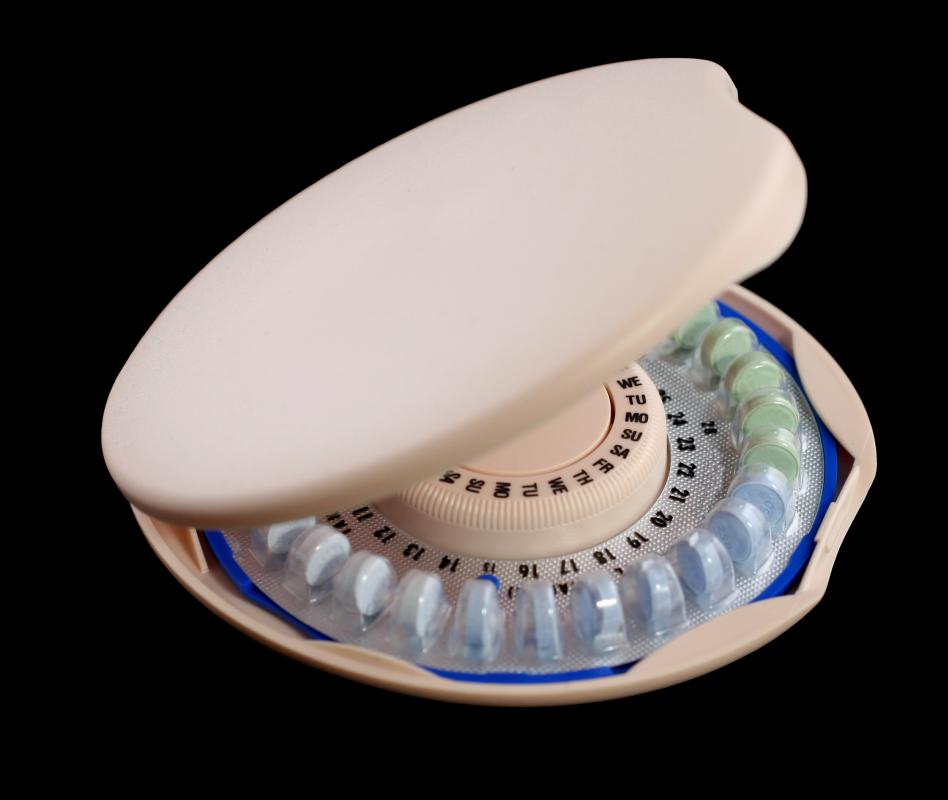At WiseGEEK, we're committed to delivering accurate, trustworthy information. Our expert-authored content is rigorously fact-checked and sourced from credible authorities. Discover how we uphold the highest standards in providing you with reliable knowledge.
What is the Connection Between Blood Clots and Birth Control Pills?
There is a link between the development of blood clots and birth control pills. Women who take pills with estrogen are three to six times more likely to develop blood clots, though even with that increase in probability, the chances of clotting are still low. Women who take birth control pills and have a family history of blood clotting, regularly smoke cigarettes, or who are overweight are among those at an even higher risk of developing blood clots. Pills with a lower dose of estrogen are believed to be less likely to cause clots.
The hormone estrogen is thought to be the primary connection between blood clots and birth control. Estrogen is one of the active ingredients in many kinds of oral contraceptives. It may make the blood more likely to clot, a condition called hypercoagulability, though it does not cause the clots themselves.

Despite the increased risk of developing blood clots, the chance of experiencing blood clotting while taking birth control pills is still low. Women concerned about the development of blood clots and birth control use can lessen their risk by taking a pill with a low dose of estrogen. Contraceptives with levonorgestrel are believed to carry the lowest risk. The risk of blood clotting associated with any birth control pill will also decrease as the woman continues to take the contraceptive.

The connection between formation of blood clots and birth control use can be further intensified if a woman also has one of several other high risk conditions. Women who are overweight, have high blood pressure, or who frequently have migraines are at a higher risk of developing clots. Individuals with a stroke, heart disease or defects, or blood clots in their family history are also higher risk. Activities such as regular smoking and frequent travel in close quarters such as in an airplane can contribute to the higher risk of clots.

Formation of blood clots can lead to deep vein thrombosis, a more dangerous kind of clot that usually forms in the leg veins. This condition may cause a clot that would move to the lungs. Any blockage of arteries in the lungs can cause a pulmonary embolism, which is often fatal.
Awareness of the connection between blood clots and birth control and knowledge of the symptoms of clotting are key factors in catching the condition before it becomes serious. Some of the most common symptoms are felt in the legs, including unusual warmth, swelling, tenderness, or pain. An individual with blood clots may also experience chest pain, shortness of breath, and weakness or numbness.
AS FEATURED ON:
AS FEATURED ON:















Discuss this Article
Post your comments